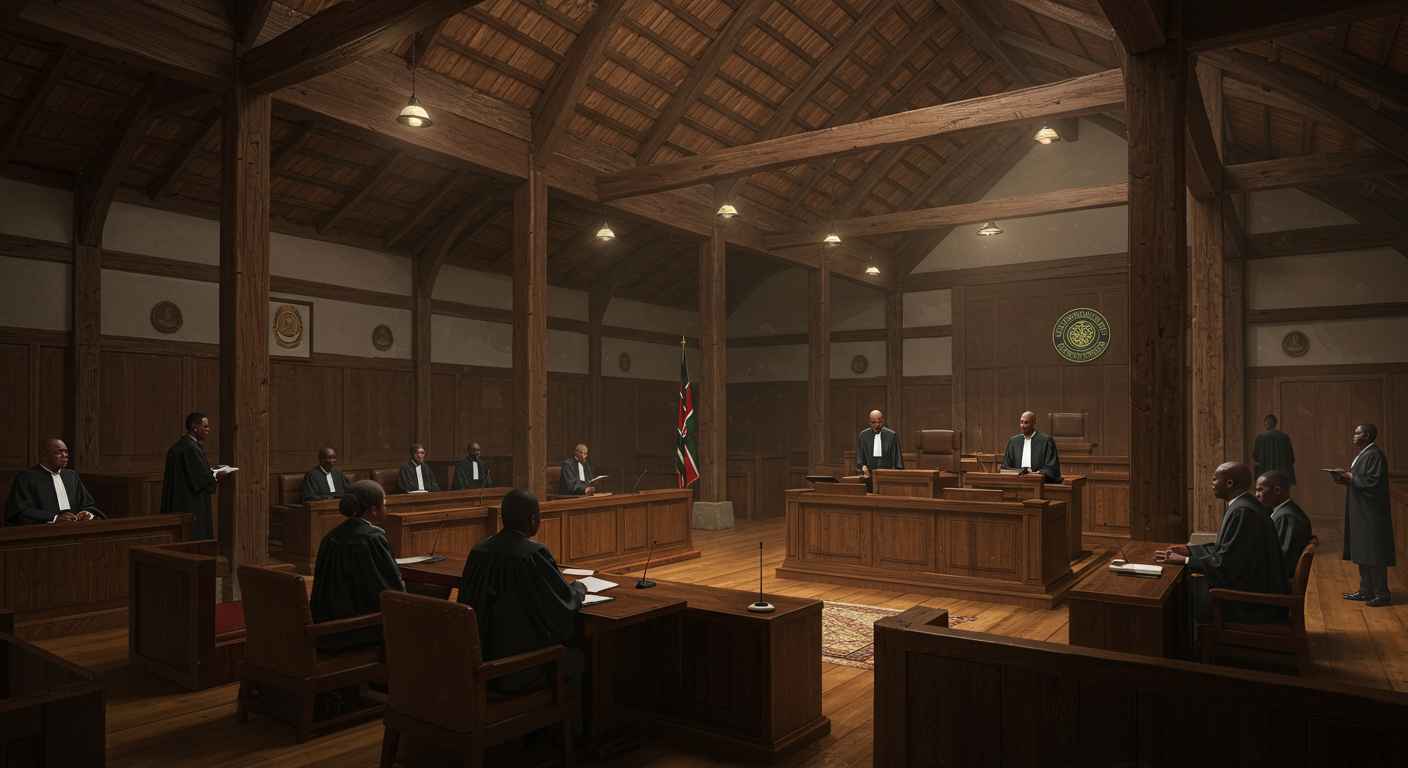The Kenyan Bar Association, officially known as the Law Society of Kenya (LSK), represents advocates in Kenya. It plays a crucial role in regulating legal practice and ensuring high standards of professionalism. This article provides a detailed guide on the Kenyan Bar Association, including how to join, the requirements, and its key functions.
What is the Kenyan Bar Association?
The Law Society of Kenya (LSK) is a statutory body established under the Law Society of Kenya Act. It regulates, advises, and represents advocates in Kenya. The association ensures legal practitioners adhere to professional standards and uphold the rule of law in the country.
Functions of the Law Society of Kenya
The LSK serves multiple roles in the legal profession and society. Some of its key functions include:
1. Regulation of Advocates
The LSK sets the professional and ethical standards for advocates in Kenya. It enforces compliance with these standards to maintain professionalism in legal practice.
2. Advisory Role
The association advises the government on legal issues, legislative matters, and policy formulation affecting the legal profession and justice system.
3. Advocacy and Protection of Human Rights
LSK actively participates in the protection of human rights and the rule of law. It engages in public interest litigation and advocates for legal reforms that promote justice.
4. Continuing Professional Development (CPD)
The society organizes training, workshops, and seminars to help advocates stay updated with changes in legal practice and enhance their professional skills.
5. Dispute Resolution and Disciplinary Actions
The LSK handles complaints against advocates and takes disciplinary action in cases of professional misconduct.
6. Networking and Professional Support
The association provides networking opportunities for lawyers and supports members with the resources necessary for legal practice.
How to Join the Law Society of Kenya
Joining the LSK is a mandatory step for anyone who wishes to practice law in Kenya. Below is a step-by-step guide on how to become a member:
Step 1: Complete a Law Degree (LL.B)
To qualify for membership, an individual must first obtain a Bachelor of Laws (LL.B) from a recognized university.
Step 2: Enroll at the Kenya School of Law (KSL)
After obtaining an LL.B, one must enroll at the Kenya School of Law (KSL) to undertake the Postgraduate Diploma in Law.
Step 3: Pass the Advocates Training Program (ATP)
The ATP is a mandatory program offered by KSL, which includes coursework and pupillage (internship) at a recognized law firm or organization.
Step 4: Admission to the Bar
Upon successful completion of the ATP, candidates must apply for admission to the Kenyan Bar. This involves taking the Oath of Admission before the Chief Justice of Kenya.
Step 5: Apply for LSK Membership
Once admitted as an advocate, one can apply for LSK membership by submitting the required documents and paying the prescribed fees.
Requirements for Joining the LSK
To become a member of the Law Society of Kenya, an applicant must meet the following requirements:
- Hold an LL.B degree from a recognized university.
- Successfully complete the Postgraduate Diploma in Law from the Kenya School of Law.
- Pass the Advocates Training Program (ATP).
- Complete the required pupillage under a qualified advocate.
- Be admitted to the Bar by the Chief Justice of Kenya.
- Pay the membership and practicing certificate fees.
- Provide proof of good character and standing.
Membership Categories in the Law Society of Kenya
The Law Society of Kenya has different categories of membership, including:
- Practicing Members – Advocates who hold a valid practicing certificate.
- Non-Practicing Members – Law graduates who do not actively practice law.
- Honorary Members – Individuals recognized for their contribution to the legal profession.
- Student Members – Law students pursuing an LL.B or postgraduate legal studies.
Conclusion
The Kenyan Bar Association (Law Society of Kenya) plays a fundamental role in maintaining legal professionalism, advocating for justice, and regulating advocates in the country.
Joining the LSK requires meeting specific educational and professional requirements, including obtaining a law degree, completing postgraduate training, and being admitted to the Bar.
Whether you are a law student aspiring to join the profession or an advocate seeking to maintain your membership, understanding the functions and requirements of the LSK is essential.
'Want to send us a story? Submit to NAIROBIminiBLOGGERS via our Email nairobiminiblogger@gmail.com'

Drop Your Comments, What do you think About The Article?